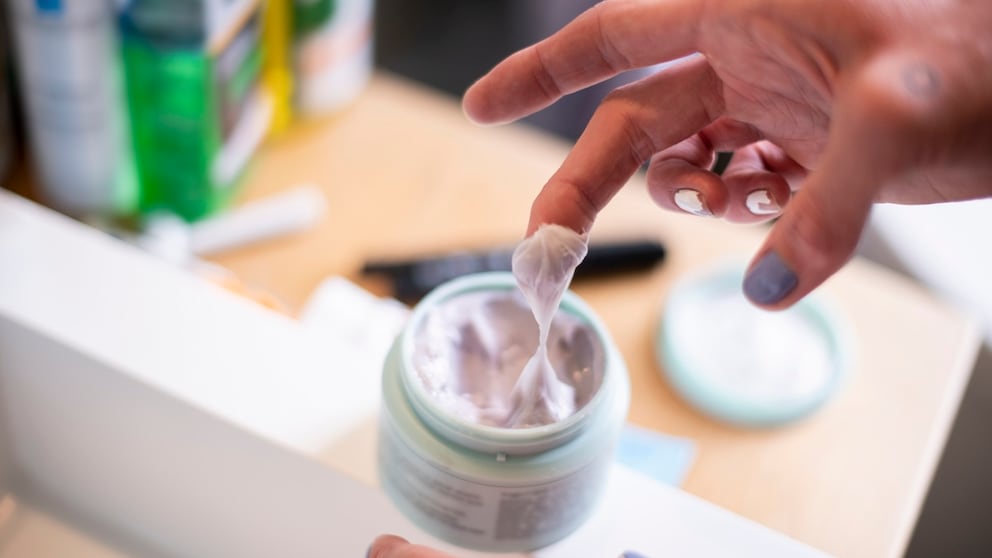October 18, 2024, 12:17 pm | Read time: 3 minutes
The consumer magazine “Ökotest” took a closer look at 22 all-purpose creams – the results were mixed. While eleven creams received top marks, there were serious concerns about some products. Mineral oil residues, preservatives, and other questionable substances have significantly clouded the ratings of some manufacturers. STYLEBOOK summarizes the test for you.
All-purpose creams such as those from Nivea or Florena are a staple in many households. They are suitable for all skin types and are used for the face, hands, and body. Due to their versatility and often simple formulation, many people regularly reach for these products, often without checking the ingredients carefully. However, the simple formulation does not mean that they are automatically safe for all skin types or age groups. Ökotest revealed that some all-purpose creams contain substances that should be avoided – especially if young children also use the product.
Overview
Mineral oil and other problematic ingredients
One of the main points of criticism in the test is the presence of mineral oil components in some creams. Aromatic mineral oil hydrocarbons (MOAH), in particular, are suspected of being carcinogenic. These compounds were detected in several of the products tested. MOAH can enter the formulations through paraffins, which are used in skin creams as cost-effective moisturizers. Even though the maximum quantities are regulated by law, the use of such substances remains controversial.
Preservatives under suspicion
Another questionable substance that is frequently used in skin creams is the antioxidant butylated hydroxytoluene (BHT). This substance is designed to prevent products from going rancid when exposed to air. However, BHT is viewed critically due to its potential hormonal effects and is currently under review by the European Chemicals Agency (ECHA).
Polyethylene glycols (PEG compounds), which act as emulsifiers and make the skin more permeable to other substances, have also been found in some creams. This can lead to harmful substances penetrating the skin more easily.
Criticism of environmentally harmful plastics
In addition to health concerns, ecological aspects also play an important role. The testers found non-biodegradable synthetic polymers in six of the creams tested. These plastics pollute the environment as they cannot be fully degraded in most sewage treatment plants and, therefore, end up in the water. Natural cosmetic products, which were also included in the test, do not contain these synthetic ingredients and, therefore, offer a more environmentally friendly alternative.
Sustainability remains a challenge
While the ingredients of many creams were classified as harmless, the packaging is still a challenge. Only one of the creams tested used packaging with a recycled content of more than 30 percent. Many products continue to be made from plastic or aluminum without any detectable recycled content.
These are the best all-purpose creams in the “Ökotest”
Fortunately, there were also many positive results. Eleven of the creams tested received the top rating of “very good,” including some well-known natural cosmetics brands. These products did not contain any questionable substances and were also convincing in terms of environmental friendliness.
The test winners include:
- Weleda Skin Food Light: A rich cream that nourishes with natural ingredients.
- Isana Soft Cream: A budget-friendly option from the drugstore that is free of questionable ingredients despite its affordable price.
- Lavera Basis Sensitive Cream: Vegan natural cosmetics that intensively nourish especially dry skin.

The Best Pistachio Perfumes for Every Budget

Lola Weippert: “I Am Afraid When I Leave My house”

Hyaluronic Acid Against Wrinkles? Application, Effect, Risks
“Ökotest” conclusion: Keep your eyes open when buying all-purpose creams
Therefore, consumers should always examine the ingredient list and opt for products that are free of mineral oils, PEG compounds, and other concerning substances. Those who also value sustainability should look for environmentally friendly packaging.

